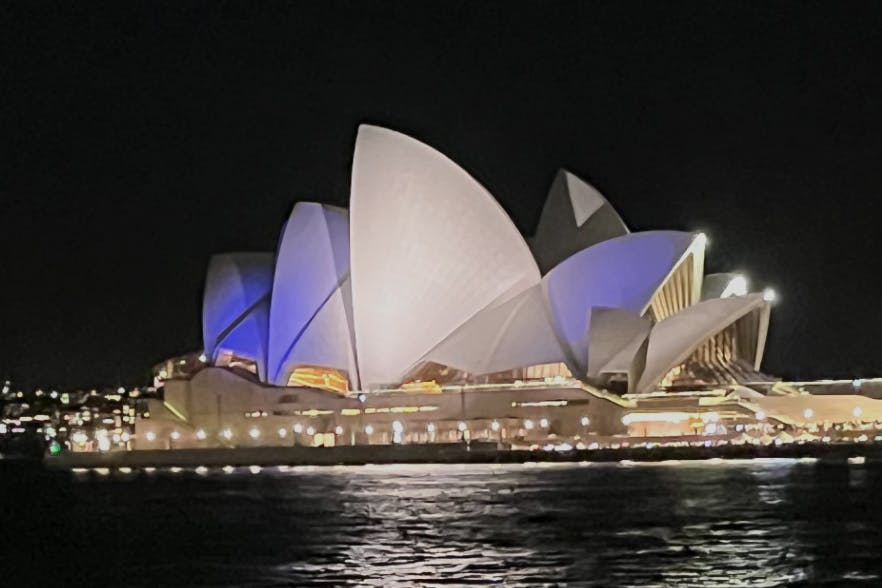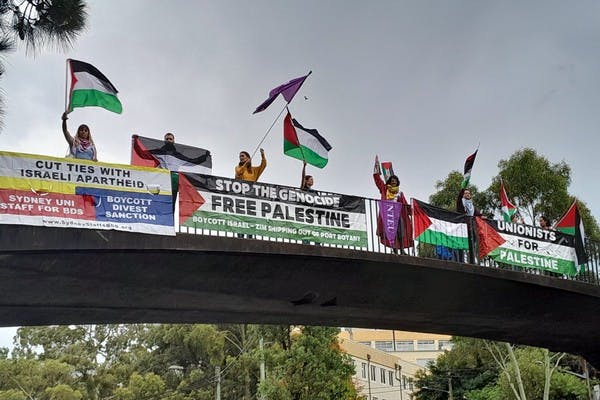Published: 13 July 2021
Last updated: 4 March 2024
ANNE SUSSKIND talks to Lisa Emanuel, whose edgy first novel, The Covered Wife, has caused a stir with its warts-and-all portrait of Sydney’s flashy eastern suburbs
WRITE ABOUT WHAT you know, first time authors are always told. But Lisa Emanuel is very clear: Sarah, the protagonist in her debut novel The Covered Wife (Pantera Press) is not her and the story is not that of anyone she knows. Her husband is nothing like Daniel, the man Sarah marries, and Lisa comes from a large, warm family, not an only-child-single-parent one, and she definitely did not join a frightening cult – all to my relief as an interviewer, since the persona Emanuel has so adeptly constructed is so insecure and tortured.
Still, the setting she creates at the outset is much like the one Emanuel lives in – Sydney’s eastern suburbs, with its foibles and wealth on display. On top of a myriad of personal issues, it is distaste for this that propels the couple’s slide from a Bondi beachside synagogue into a misogynistic quasi-religious Jewish cult in the Blue Mountains, complete with lascivious leader and women in head-to-toe shapeless black.
It’s a compelling, if ominous, read. At the outset, Sarah is a successful lawyer working long hours, but underneath lies a deeply self-conscious young woman, longing for a man to wrap his arms around her, yearning to belong. When she meets a handsome barrister, Daniel, her world is transformed and she’s walking on air, but that soon unravels when Daniel is not what he seems.
Extremism of any sort, Emanuel tells me, ends up being a tool of repression for women, and it is this that concerns her: “They seem to get the worst of it… I suppose I was trying to understand why someone would make those choices. Perhaps [Sarah] was her own worst enemy.”
As Emanuel is, by her own admission, “enmeshed” in the community which Sarah criticises, writing about it caused her anxiety, and she is relieved that her novel has been very well received by early readers, some of whom are exactly like the characters in it. She is quick to point out that Sarah’s take on things, which “could be mean", is “more a comment on the eastern suburbs, more than necessarily Jewish people.”
Emanuel is quick to point out that Sarah’s take on things is 'more a comment on the eastern suburbs, more than necessarily Jewish people'.
Her description of the look-alike women, hair long and straight, wardrobes of skinny jeans and fitted t-shirts, all taking the same holidays, is cutting: “They were smart, those women, some of them very smart, with multiple degrees from the best universities.
“Yet, if they worked, they didn’t talk about it; if they cared about things beyond the everyday, they mostly kept it to themselves… They were aloof; uninterested in anything or anyone beyond the privileged word in which they circulated...”
Elsewhere, she writes: “It’s easy to have pure motives when you’re rich… In Daniel’s world, almost everyone had enough not to need to be motivated by money.”
But Emanuel is quick to point out, too, that Daniel’s family, who embraced Sarah whole-heartedly, had much to recommend it. “Yes, the sisters are glamorous and they live in a big house but they also have warmth and banter between them that she wishes she had. They may have been affluent, but there was more to them than that.”
It is, she says, in many ways a novel about loneliness, as well as family dynamics. Emanuel is fascinated by the differences between only children of single parents, and the dynamics of families like the one she comes from. Where there are more children, she says, the parental intensity is spread out.

By contrast, Emanuel, a happily married mother of three, who has been with her husband since age 23, has a light-hearted, infectious laugh on the phone. She’s a lawyer in a top-tier global firm, a career she returned to two years ago after working in her husband’s Rose Bay real estate business while her children were younger.
One of six siblings herself, she grew up in Wellington in New Zealand in a not-particularly-practising religious but “very Jewish culturally” family. It was a really tiny Jewish community. In such a minority, you could either assimilate, or make it a big feature of your identity, she said. Her family did the latter. They belonged to a modern Orthodox synagogue, she went to Habonim and Sunday school, and to Israel at age 18.
People often expect a first novel to be autobiographical and, thinking about it afterwards… I see now that I was like an outsider in this big, very connected Jewish community.
She also attended Mount Scopus College in Melbourne on a scholarship for Year 12. She loved it - her friends’ mums and the way they parented seemed similar to her own, as was the food at their homes. But though it was “quite amazing”, she had mixed feelings, which she was able to draw on for Sarah’s character: “People often expect a first novel to be autobiographical and, thinking about it afterwards… I see now that I was like an outsider in this big, very connected Jewish community.
“I was there a year, and probably didn’t meet a non-Jewish person… In New Zealand, there’s not that sort of wealth, certainly not in Wellington… Everything is more low key, and [the Melbourne experience] was a huge shock.
“Not everyone [there] was wealthy, the people I made friends with were just sort of normal middle class-type people. It was the size and insular nature of the Jewish community…”
Since its release in June, the book has created a stir in the Jewish community and beyond, with prominent coverage in mainstream media, including a piece by the Australian Financial Review’s legal writer. Reaction thus far has been really positive, Emanuel says, and she is glad she took on board the feedback from an early “sensitivity reader” to distinguish carefully between the cult group in its later stages and the kind of Orthodox or mainstream Judaism one might find in Bondi.
The cult could have had any religion as its departure point, and a woman who had been in an Islamic cult had said the book had raised many issues for her too.
The cult, she says, could have had any religion as its departure point, and a woman who had been in an Islamic cult had said the book had raised many issues for her too.
There are other important threads - motherhood and relationships - and also there’s “quite a lot of food”, Emanuel says. There certainly is, and a lot of food preparation under the cult’s gut-wrenchingly high-pressure Shabbat cut-off times, but any Jewish person will laugh too, at the spot where each child is given a different combination on their plate.
There’s an undertow of homosexuality, as well as the lascivious cult leader, Rabbi Menachem Lev, sleeping with everyone. And, while she wasn’t thinking along those lines when she wrote it, The Covered Wife has all the ingredients for a movie: the Orthodox ritual would lend itself to visuals, Emanuel says, as would the beauty of the Blue Mountains and Bondi.
But for now, she’s left that closed community of her imagination behind, and has started a second book. She’s thankful to be back in the legal profession too, having learnt that it’s not easy to make a living as a writer and that the “big expanse” of a novel stretching can be long and lonely.
Her specialisation, competition law, is in huge demand so the lawyer’s fear of stepping off the trajectory did not materialise. “When you do law, you get paid well and you get feedback quickly and you’re in a team. The people I work with are lovely. Having done the writing made me appreciate all that.”
LISA EMANUEL LIVE IN CONVERSATION TONIGHT
Lisa Emanuel will talk with Shirli Kirschner in a conversation presented by Limmud Oz at 7.30pm this evening, with a live audience chat. CLICK HERE TO BOOK




